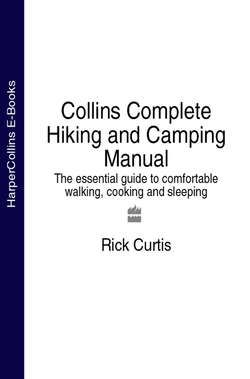Читать книгу Collins Complete Hiking and Camping Manual: The essential guide to comfortable walking, cooking and sleeping - Rick Curtis - Страница 13
ОглавлениеMaintaining proper hygiene is a challenge in the wilderness. After hiking down a muddy trail all day you are just covered with gunk. Add sweat, sunscreen, and bug repellant and you can be a mess. While part of the joy of backpacking is returning to a more basic existence, giving up the luxuries of hot and cold running water, toilets, showers, and the like, sometimes we surrender too much to the dirt that surrounds us and that can lead to actual health problems. Dirty and open blisters or cuts and scrapes are a ripe environment for infection. Bacterial infections can spread through poor cleaning of cookware and poor personal hygiene before handling food. Get into the habit of using good cleaning practices for a safer and more enjoyable trip. It’s not just your cleanliness; someone else’s lack of good hygiene could cause you to become sick. (See below.)
KEEPING CLEAN ON THE TRAIL
One of the most common health problems when backpacking is gastrointestinal illnesses like diarrhea, which are spread by fecal-to-oral transmission. Fecal-borne pathogens get into your system through one of several routes:
Direct contact with faeces (even using toilet paper leaves germs on your hands)
Indirect contact with hands that have contacted faeces (shaking hands, for example)
Contact with insects that have contacted faeces
Contact with contaminated drinking water
